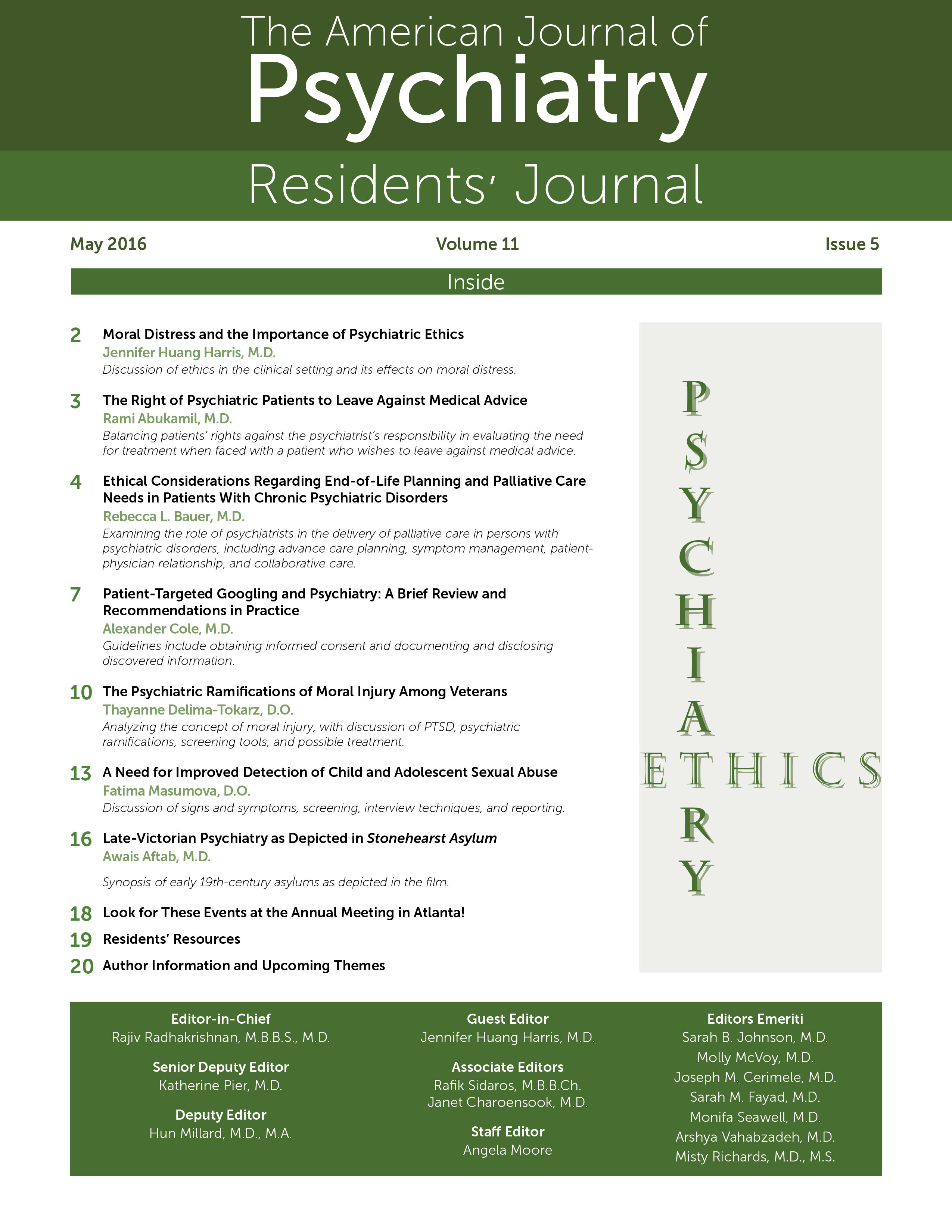Psychiatrists commonly encounter patients who wish to leave against medical advice. When faced with this situation, a physician should evaluate the need for treatment. This evaluation should include assessments of risk, the level of disability, the ability to provide for basic needs, as well as the capacity to make rational treatment decisions (
1).
In Michigan, a voluntary patient can request a discharge by signing the 72-hour release form or, alternatively, by writing a “3-day letter.” If the examining physician determines that the patient requires involuntary hospitalization, the treatment team has 3 days to complete a petition for hospitalization and two physician certificates and file them with the court. In that event, the patient must remain in the hospital until the court makes a determination (
2).
Common situations in which voluntary patients leave against medical advice include when they lack insurance coverage or are dissatisfied with services (
3). The outcome relies on whether the doctor has a duty to involuntarily commit the patient or to discharge the patient against medical advice (
3,
4).
In Solbrig v. United States, a veteran committed suicide after being discharged against medical advice. The plaintiff alleged that the patient should have been involuntarily committed. The court found for the defendants, highlighting the fact that while the veteran reported suicidal thoughts on admission, he had demonstrated no intent or plan. Furthermore, on his discharge examination, the veteran was “clear-headed” and no longer reported suicidal thoughts. Given these findings, the court found no breach of duty or malpractice (
3,
4).
In Wilson v. Blue Cross of Southern California, a patient was admitted to a hospital for treatment of depression, substance use, and anorexia. The initial plan was to hospitalize the patient for 3–4 weeks. The patient was discharged after 10 days, when the insurance company refused payment. The patient committed suicide approximately 3 weeks after discharge. The psychiatrist testified that had the patient been allowed to complete the recommended course of hospitalization, the suicide could have been prevented. The Court of Appeals found in favor of the plaintiff and reversed the trial court’s dismissal on summary judgment of the case, arguing that both a treating physician and managed care organizations could be found liable (
3,
4).
Thorough documentation can offer the best legal protection; this entails a record of all risk assessments, highlighting the risk and protective factors, and the interventions. Important interventions include the use of moral suasion to help the patient accept hospitalization, communication with significant others and family members who can report on the patient’s specific symptoms, triggers and behaviors, and addressing modifiable factors, such as removing access to weapons. Appealing to third-party payers or helping the patient establish financial arrangements should be considered when denial of coverage becomes an obstacle (
1,
3,
4).
The decision to discharge is ultimately the psychiatrist’s responsibility. However, the psychiatrist must make that decision in a way that benefits the patient and avoids harm to the patient and the community.
